
Suicide of a teenager at Nazarbayev Intellectual School in Almaty in October 2021 has become one of the most discussed topics in the Internet, media space of Kazakhstan. It was easy to notice that long before the official investigation results and report, numerous comments linked the reason as the internal problems of the school or the entire education system crisis of the country. This opinion is becoming an established reflection and stereotype about the low quality of work of the school, teachers, and the increased workload on schoolchildren.
Kazakhstan remains one of the world leaders in the number of suicides among adults and youth, although the situation has improved compared to the previous decade. According to the official information of the Committee on legal statistics and special accounts of the General prosecutor's office of the Republic of Kazakhstan, there were 143 cases of suicide and even more suicide attempts among adolescents last year. Fortunately, the statistics have improved from the previous year of 2019, when there were about 180 cases of suicide among adolescents. Obviously, the reasons can be family problems, socio-economic disorder, personal motives and other conflicts. School, college, university could be the missing tool for changing the situation, but the education system itself is experiencing numerous problems of insufficient funding, poor quality of education, equal access to quality education between regions, and much more.
Education in Kazakhstan is a constant subject of attention of the media, civic activists, scientists and NGOs, which shows not only examples of the success of some schoolchildren, individual students at world championships, but also negative examples of serious problems of poor quality of education, corruption, suicides, harassment, and bullying.
It is difficult to find a more serious topic for the attention of journalists, officials, scientists, civic activists, international researchers than the quality, prospects and issues of education, since this area affects the interests of every citizen and parent in the country. There are many different facts and examples that show any non-specialist that the field of education requires attention and serious critical study.
A perennial problem in Kazakhstan remains low, limited funding for education in Kazakhstan, which does not meet the UNESCO recommendations of 5% –7% of GDP. Traditionally, during previous decades, the expenditures of the state budget of the Republic of Kazakhstan on education varied within 2.5-3.5% of the country's GDP. This level of public investment as a percentage of GDP is considered low and noticeably falls short of those recommended by UNESCO. According to the World Bank ranking, Kazakhstan was in 157th place out of 217 in terms of education spending in 2019. For comparison, Kazakhstan had much lower, negative results than nearby Kyrgyzstan, Ukraine, Uzbekistan and other countries of the CIS region. An unsolved problem remains the gap in access to high-quality and modern secondary education in rural and urban areas. Deputy of the Lower branch of the Parliament - Mazhilis Irina Smirnova confirmed that at present there is social, educational injustice between rural and urban children. “Yes, I’m not against schools being all like Nazarbayev intellectual school. But this is impossible today. ... At the same time, you go to the village and see how the child has no access to anything at all. What was he guilty of? Because he was born in a village ... ”.
One example of “feet voting” in education is higher education enrollment. Despite the large number of universities, public scholarship grants, the constant struggle for the quality of education, there is an annual increase in the number of young people leaving Kazakhstan to study at foreign universities with unknown consequences for the country and the intellectual capital of the nation. Their number has already reached almost 90,000 students in 2019, according to data by the UNESCO Institute for Statistics. It is hardly possible to expect adequate, timely actions of teacher to notice suicidal tendencies, psychological problems of a schoolchild, or a student in a situation of overcrowded classes, two-shift, three-shift schools, in a building without heating, requiring urgent repairmen with a toilet located outdoors.
The current budget of the Republic of Kazakhstan in 2021, which was initially 13.7 trillion Kazakhstan tenge, showed a significant reduction in funding for many traditional areas, including the education system, compared to the previous pre-Covid years in 2018 and 2019. Many of the former high and lavish spending lines have undergone significant changes. For example, in 2021, budgetary spending on many areas decreased, such as construction at the expense of the state, payments for state owned Otbasy Bank, financing of the Ministry of Defense, Internal Affairs, and even the KNB. Only one security agency received a significant increase in spending, namely the border guards. However, most of all, the pandemic and the corresponding economic crisis affected the decrease in funding for the education sector in 2021, which may amount to 1.3 trillion Kazakhstan tenge. For example, for comparison, in 2019 the state budget expenditures on education were significant and amounted to 2.33 trillion tenge with a share of GDP of 3.62%. 2020 was a record year for the education sector and amounted to more than 3.1 trillion tenge at 4.5% of the country's GDP. The reduction in education spending affected the holy of holies, the "hope" of the intellectual potential and future development of Kazakhstan as funding for Nazarbayev University and Nazarbayev Intellectual Schools. The Nazarbayev University alone lost more than a third of government funding in the 2021 budget. But expenditures to support higher education and the development of science have persisted and increased.
Summing up, one could hope to achieve the goals and objectives of the National Project "Educated Nation", which promise to reduce the gap in the level of knowledge between urban and rural schools according to the results of PISA by 2025, build 1000 new schools, and renovate 5000 schools. Together with the prospect of fixing responsibility for “bullying” and “cyberbullying” in the Criminal Code of the Republic of Kazakhstan, this may have a positive effect on K. Tokayev’s idea of forming “a new generation of optimists with a strong will and ability to overcome life’s troubles,” which is still not quite successful in Kazakhstani society.
Sharip Ishmukhamedov, A+ Analytics



















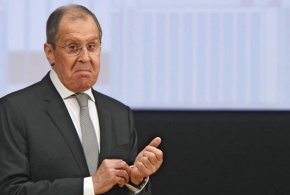 Minister Lavrov knows who's boss
Minister Lavrov knows who's boss
 "Atomic" exam for officials of Kazakhstan
"Atomic" exam for officials of Kazakhstan
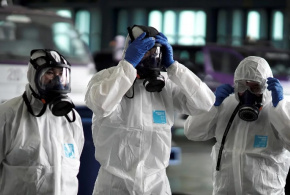 The WHO has made warning to Kazakhstan
The WHO has made warning to Kazakhstan
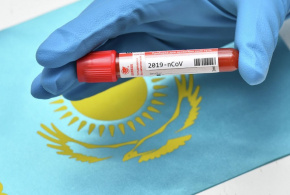 COVID-19: More than a thousand Kazakhs infected in one day, but the statistics are incomplete
COVID-19: More than a thousand Kazakhs infected in one day, but the statistics are incomplete
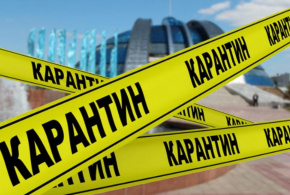 Tokayev instructed to extend the quarantine for another two weeks
Tokayev instructed to extend the quarantine for another two weeks
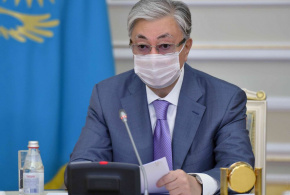 Kazakh president instructed the government to "decide" on the statistics of the coronavirus
Kazakh president instructed the government to "decide" on the statistics of the coronavirus